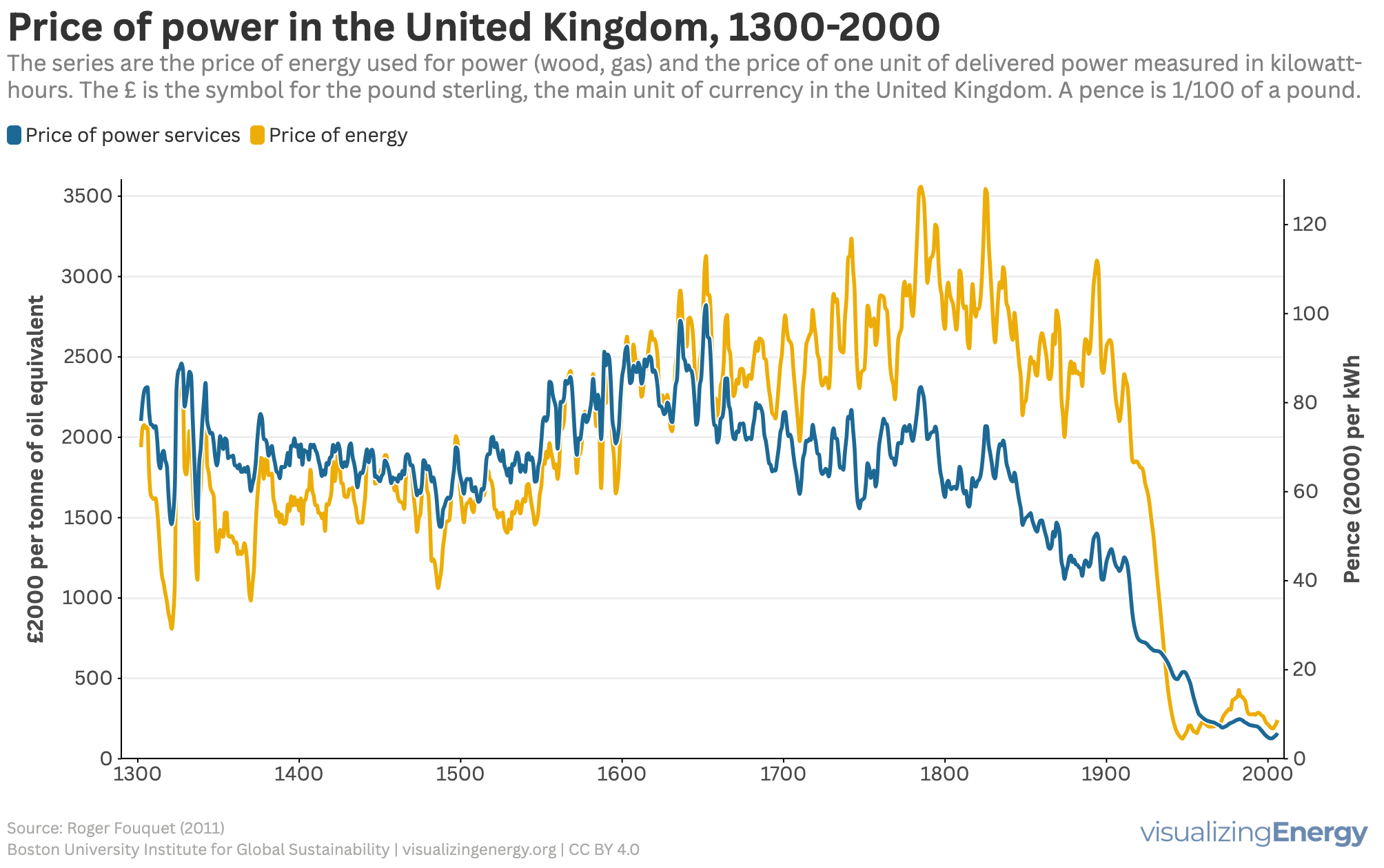
The price of power in the United Kingdom, 1300-2000
One outstanding feature of historical energy transitions was the change in the cost, power, and efficiency of the energy converters that humans used to perform

One outstanding feature of historical energy transitions was the change in the cost, power, and efficiency of the energy converters that humans used to perform
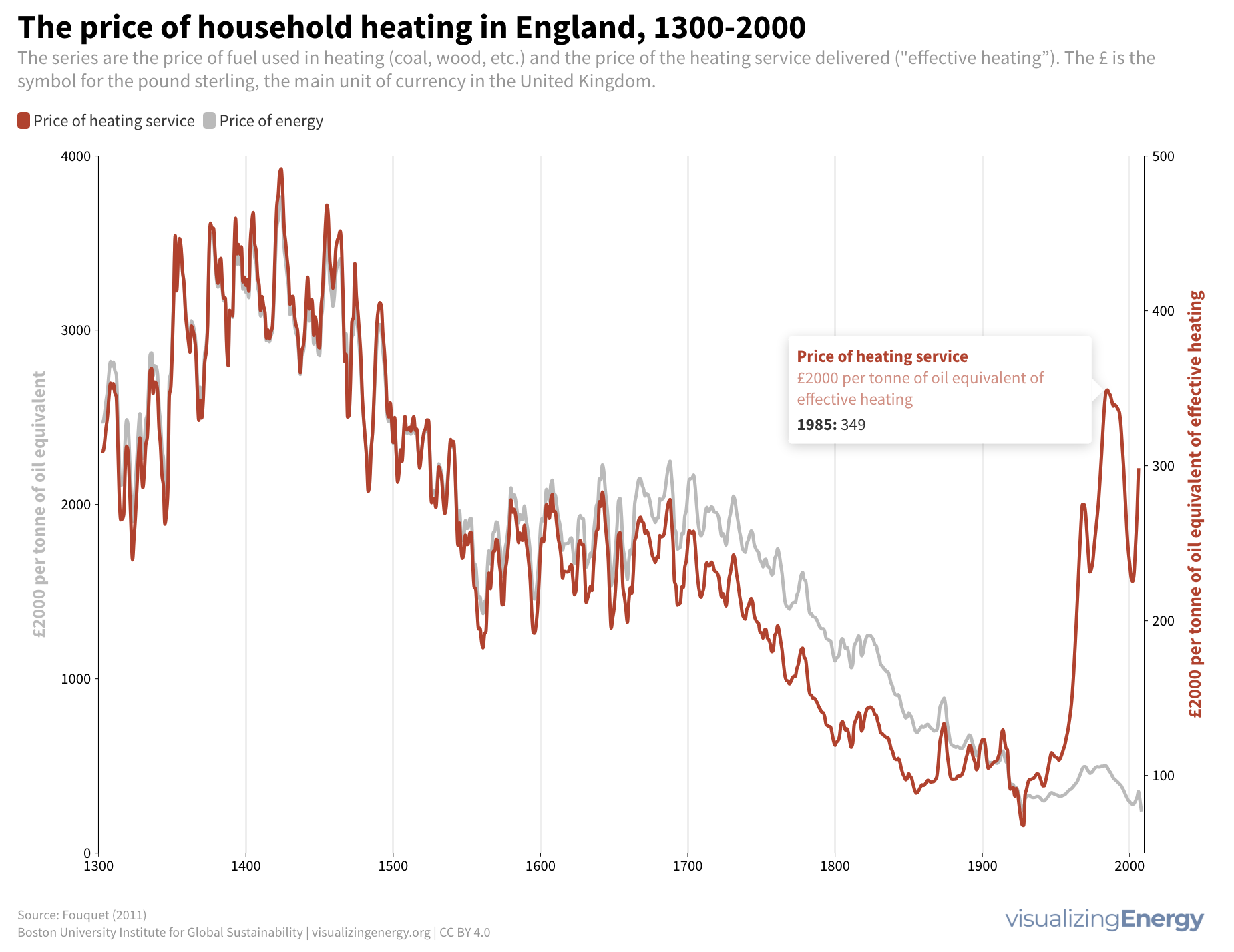
Energy historian Roger Fouquet’s analysis of historic energy transitions in household heating in England from 1300 to 2000 reveals interesting trends. The shift from wood to coal and later to natural gas resulted in fluctuations in fuel prices. Despite the increase in energy costs, improvements in technology and air quality led to a significant decrease in the price of heating services by 2000.
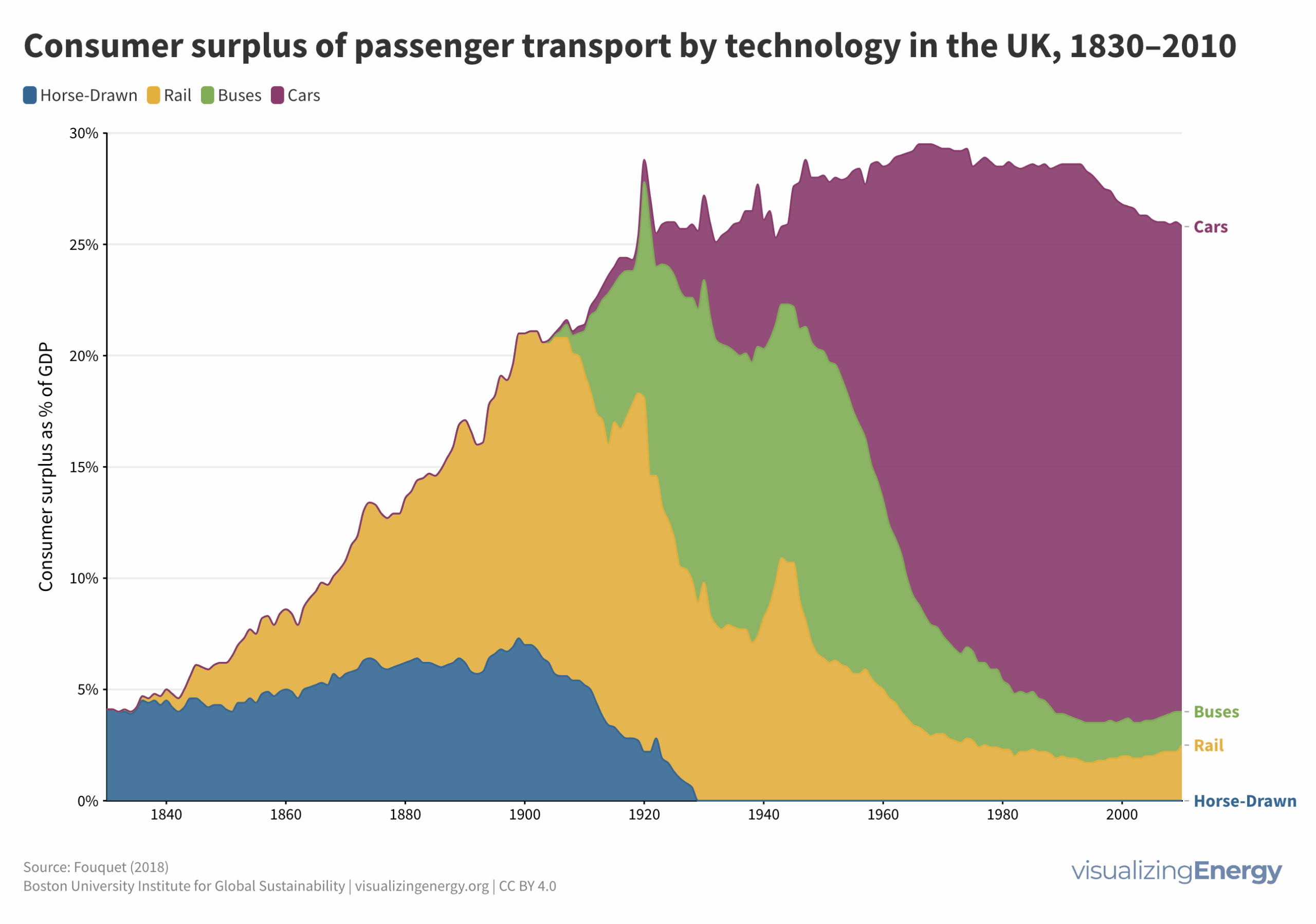
Historic energy transitions, primarily driven by fossil fuels, significantly improved human well-being, measured through consumer surplus. In the UK, transitions from stagecoaches to railways to cars, and from candles to gaslight to electric lighting, substantially increased consumer surplus. However, these benefits diminish as societies reach high well-being levels.
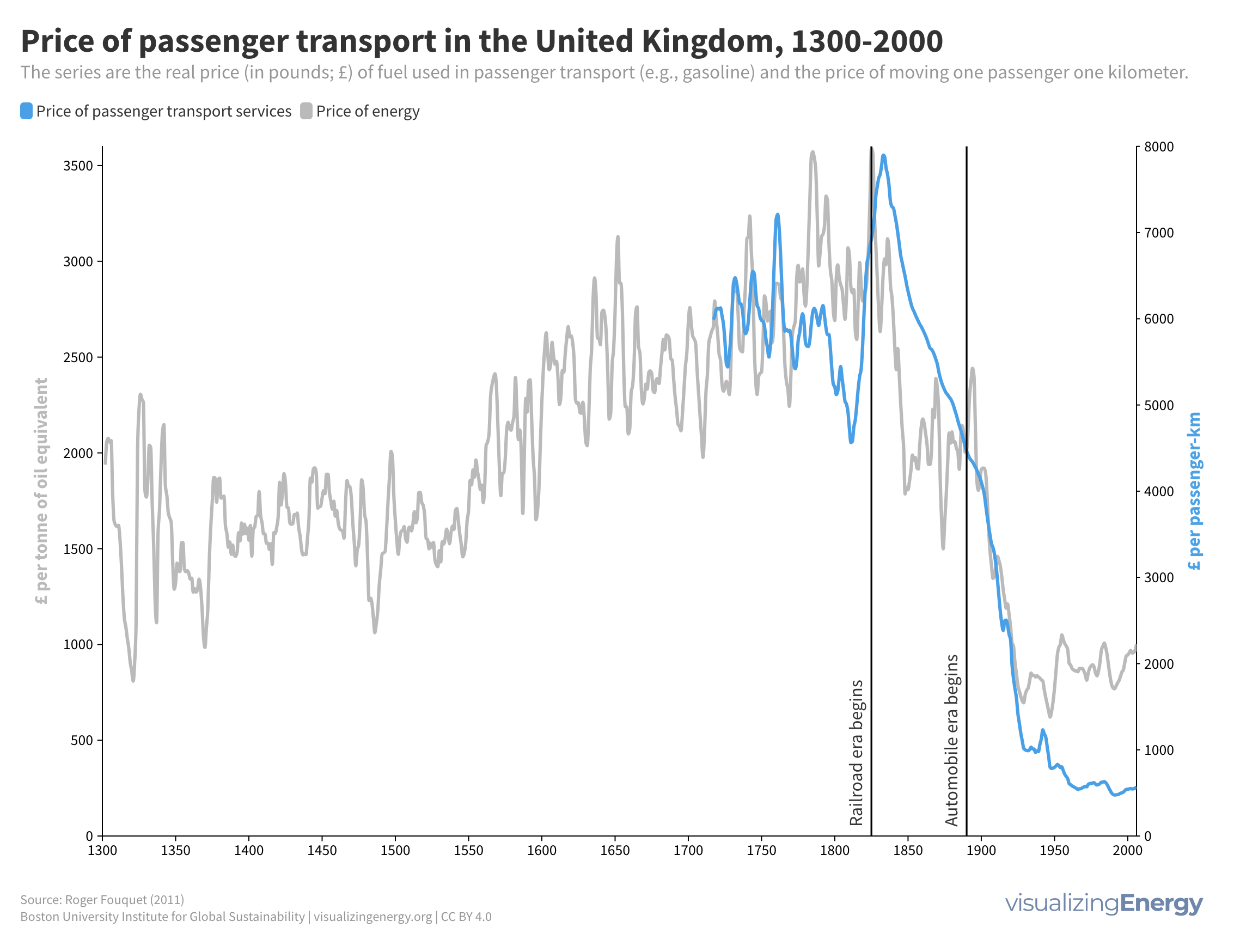
Access to personal mobility has played a crucial role in people’s life satisfaction, with personal vehicles revolutionizing daily life since the early 1900s. The number of global car registrations has dramatically increased over the years, reaching 1.1 billion in 2019. The energy historian Roger Fouquet explored the impact of personal transportation services in the United Kingdom from the 14th to the 20th century, revealing the economic, social, and environmental changes brought about by the expansion of personal travel.
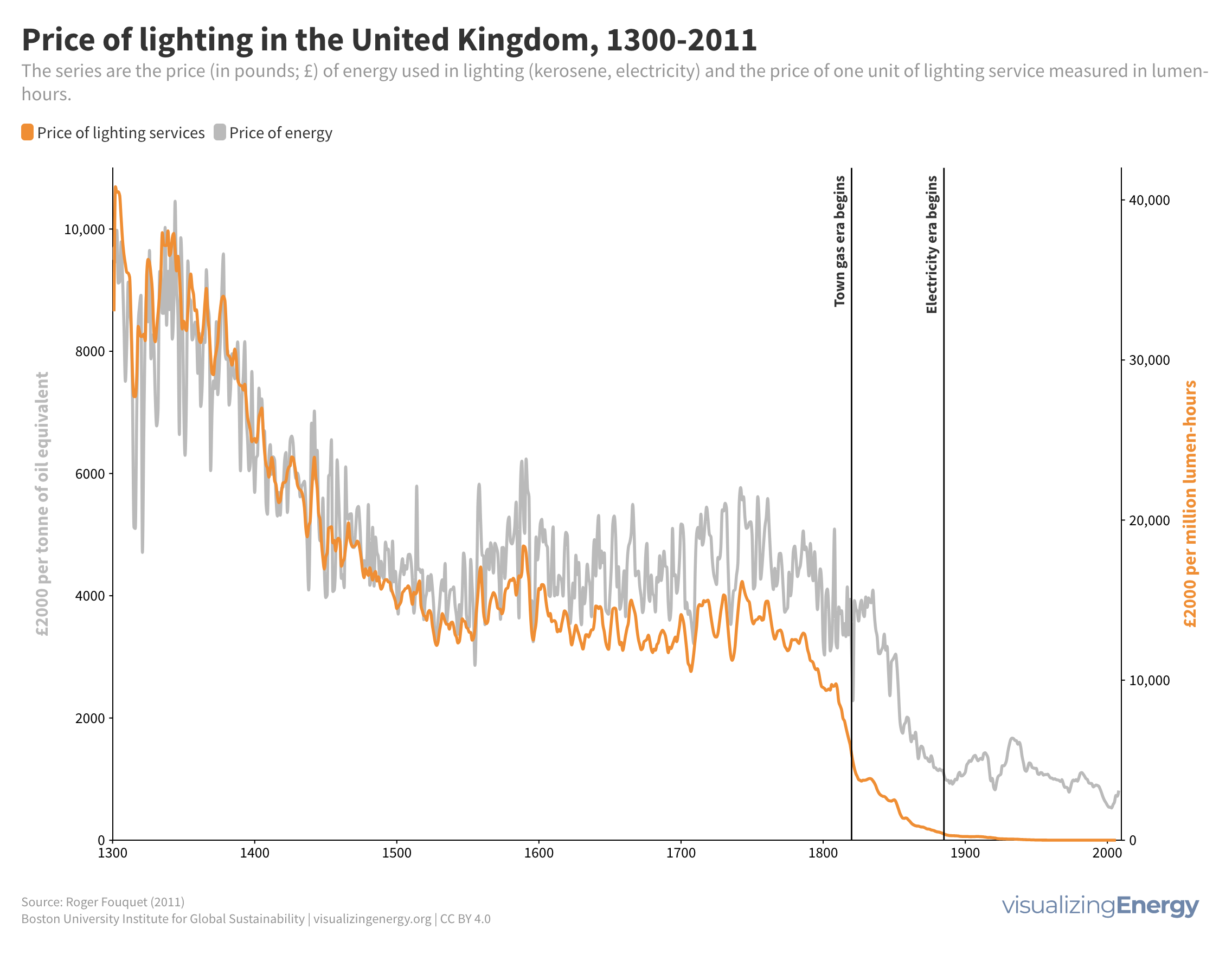
The transition from traditional lighting methods to modern illumination in the United Kingdom has had significant social, economic, and environmental consequences. Historically, lighting services relied on candles made from animal fat, but the 19th century saw the introduction of new fuels such as town gas, kerosene, and eventually electricity.
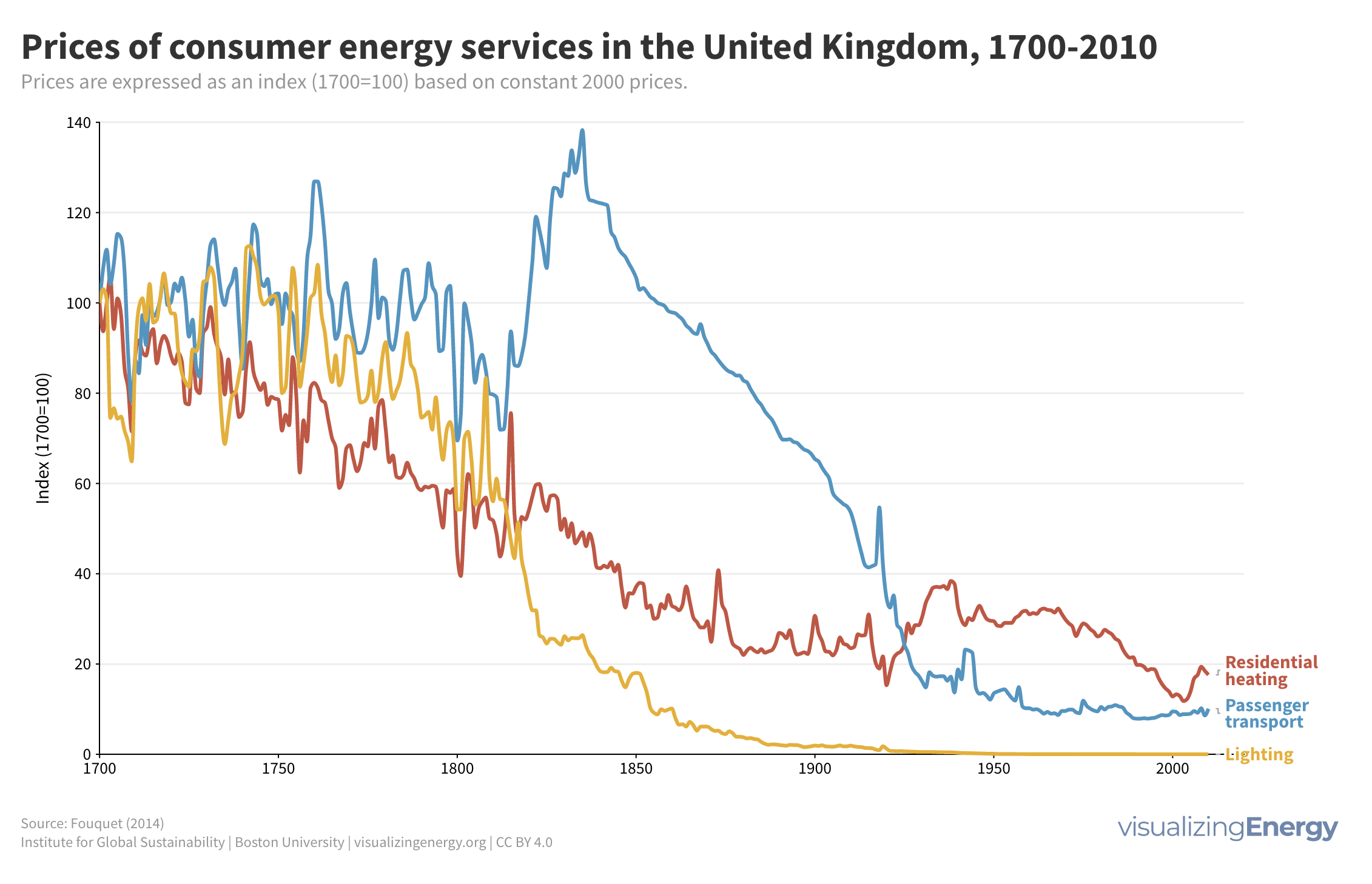
Roger Fouquet’s research on the United Kingdom highlights the remarkable growth in energy consumption over centuries. Factors like fuel shifts, improved efficiency, and changing preferences drove the increases. However, efficiency gains led to the rebound effect, where saved energy was partly offset by increased consumption.